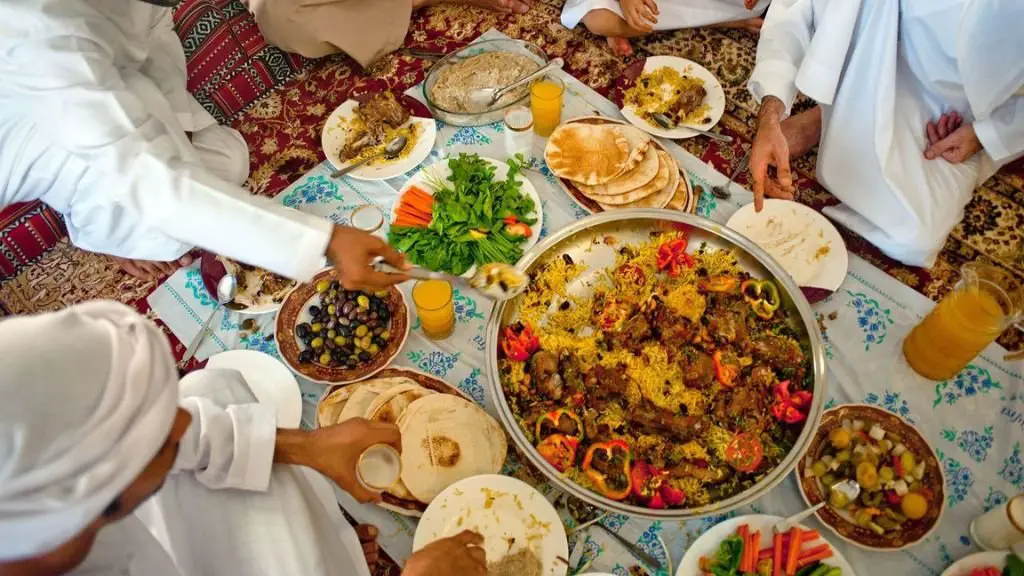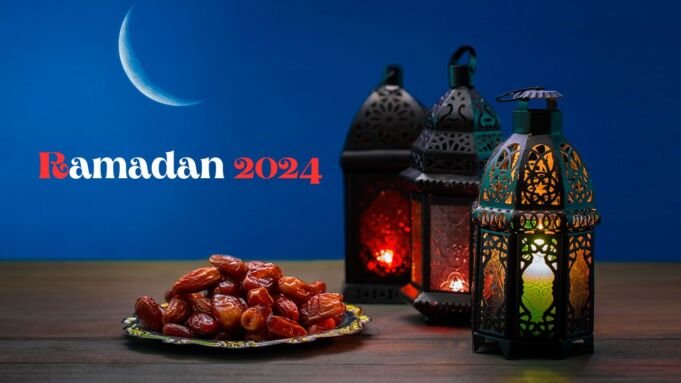Ramadan, the ninth month of the Islamic lunar calendar, is a period of fasting, reflection, devotion, and community. It is considered the holiest month for Muslims worldwide, as it commemorates the month in which the Quran was revealed to the Prophet Muhammad. During Ramadan, adult Muslims are required to fast from dawn until dusk, abstaining from food, drink, smoking, and sinful behavior. The fast is broken each day with a meal known as ‘Iftar’ and begins with a pre-dawn meal called ‘Suhoor’.
The significance of Ramadan in Islam cannot be overstated. It is one of the Five Pillars of Islam, fundamental acts of worship that are central to the Muslim faith. The fast of Ramadan is not just about abstaining from physical comforts but is also a time for spiritual reflection, prayer, doing good deeds, and spending time with family and friends.
The expected start date of Ramadan 2024 is subject to the sighting of the moon, as Islamic months begin with the sighting of the new moon. Therefore, the start of Ramadan can vary by a day or so in different parts of the world. Based on astronomical calculations, Ramadan 2024 is expected to begin on the evening of March 10th, with the first day of fasting on March 11th.
What is Ramadan?
Ramadan stands as a sacred period for Muslims, a time to honor the moment when, as noted by Almanac, Allah conveyed the initial verses of the Quran to Muhammad, a caravan trader, through the angel Gabriel.
This month-long observance is not only about commemorating the Quran’s revelation but also involves fasting from all food and drink during daylight hours. As ING explains, this practice is aimed at fostering a deeper connection with God while nurturing virtues such as self-discipline, thankfulness, and empathy for those in need.
When is Ramadan in 2024?
Ramadan, always observed in the ninth month of the Islamic calendar, sees its dates shift annually due to reliance on the lunar cycle, specifically the appearance of the crescent moon above Mecca, Saudi Arabia, on the concluding night of Sha’ban, the eighth month. Some individuals opt to follow set dates for Ramadan, determined by astronomical predictions, as noted by Almanac.
This year, the commencement of Ramadan is marked at dusk on Sunday, March 10, concluding at dusk on Tuesday, April 9.
Eid al-Fitr, which signifies the end of Ramadan’s month-long fast and is celebrated over the first three days of Shawwal, the Islamic calendar’s 10th month, does not begin until the sighting of the new moon, resulting in varying start times globally, as detailed by the Pluralism Project. While some Muslims initiate celebrations with the sighting of the new moon over Mecca, Eid al-Fitr is universally celebrated with a grand feast, marking the conclusion of Ramadan.
Observances and Practices

Fasting (Sawm)
Fasting from dawn until sunset is obligatory for all adult Muslims during Ramadan, with exceptions for those who are ill, pregnant, breastfeeding, menstruating, traveling, or facing any condition that may be exacerbated by fasting. The fast includes abstention from food, drink, smoking, and sinful acts, aiming to teach self-discipline, self-restraint, and generosity.
Suhoor and Iftar
Suhoor, the pre-dawn meal, is encouraged as it provides energy and blessings for the day of fasting. Iftar, the meal to break the fast, traditionally begins with dates and water, followed by a larger meal. These meals are often shared with family and friends, fostering a sense of community and togetherness.
Taraweeh Prayers
Taraweeh are special nightly prayers performed during Ramadan. They are not obligatory but are highly recommended, offering Muslims an opportunity to come together in prolonged worship and recitation of the Quran.
Reading the Quran
Ramadan is a time when Muslims aim to read the entire Quran. Engaging with the Quran, whether through reading, listening, or studying, is seen as particularly rewarding during Ramadan. It serves as a reminder of the guidance provided to humanity and a means to deepen one’s connection with God.
The observance of Ramadan through fasting, prayer, and the Quran fosters a communal spirit among Muslims, strengthening their faith and providing a time for deep personal reflection and spiritual growth.
Read More: Regatta De Zamboanga Festival
Why do the Dates of Ramadan Change Every Year?
National Geographic states that Ramadan holds the position of the most revered month in Islamic tradition, occupying the ninth slot on the Islamic calendar. The timing of Ramadan varies annually because it is dependent on the lunar cycle.
A moon sighting committee in Saudi Arabia is tasked with determining the onset of Ramadan, which commences the day following the observation of the new crescent moon by the committee. In instances where the moon is not visible, astronomical calculations are employed to estimate its position in the sky.
Spiritual Significance

The Purpose of Fasting and Spiritual Reflection
Fasting during Ramadan is not merely physical abstention but a means for spiritual purification and self-discipline. It teaches Muslims patience, humility, and control over desires, drawing them closer to God through increased prayer, reflection, and reading of the Quran. This period is an opportunity to reassess one’s life in light of Islamic guidance, seeking to improve character and actions.
The Night of Decree (Laylat al-Qadr)
Laylat al-Qadr, known as the Night of Decree or Power, is believed to be the night when the first verses of the Quran were revealed to the Prophet Muhammad. This night, falling within the last ten days of Ramadan is considered the holiest night of the year. Muslims seek it through increased prayer, Quranic recitation, and supplication, as prayers during this night are believed to be equivalent to those of a thousand months.
Seeking Forgiveness and Cleansing of Sins
Ramadan offers a unique opportunity for Muslims to seek forgiveness from God for past sins, with the fast serving as a means to cleanse oneself spiritually. Engaging in extra prayers, performing good deeds, and seeking forgiveness are emphasized, with the promise of being purified from sin for those who fast with faith and seek reward from God.
Charity and Community Service (Zakat and Sadaqah)
Charity is a significant aspect of Ramadan, with Muslims encouraged to give Zakat (obligatory charity) and Sadaqah (voluntary charity) more so during this month. This practice fulfills a social obligation to help those in need, promoting a sense of solidarity and community spirit. It reflects the Islamic principle that those who have more should aid those who are less fortunate.
Preparing for Ramadan 2024
Physically preparing for Ramadan involves adjusting sleep schedules, practicing moderate fasting, and planning nutritious meals for Suhoor and Iftar. Spiritually, engaging more in prayer, reading the Quran, and reflecting on personal goals and values can help set the tone for a fulfilling Ramadan.
Setting clear, achievable goals for fasting, prayer, charity, and personal development can enhance the Ramadan experience. Communal goals might include organizing iftars, participating in charity events, attending prayer meetings, and fostering a sense of unity and purpose.
Utilizing resources such as apps for Quran reading, prayer times, and virtual religious classes can enhance understanding and observance. Connecting with local or online Muslim communities can provide support and enrich the Ramadan experience through shared learning and activities.
What Muslims Cannot Do During Ramadan?
During Ramadan, Muslims dedicate themselves to spiritual growth and worship, abstaining from certain behaviors that could distract from their devotion to Allah. The month of Ramadan requires avoiding the following:
- Eating and drinking in daylight: Muslims must refrain from eating or drinking from dawn (Fajr) to sunset (Maghrib). This prohibition includes all types of food and drink, such as water, coffee, and other beverages, as well as chewing gum.
- Smoking: Smoking is prohibited during the fasting hours of Ramadan, as it is seen as breaking the fast and counteracts the principles of self-discipline and purification.
- Sexual relations: While married couples are advised to abstain from sexual activities during daylight hours, such intimacy is allowed after the evening meal when the fast is broken.
- Inappropriate speech and conduct: Maintaining good conduct is essential in Ramadan, which means avoiding foul language, arguments, and any negative behavior that could undermine the fast’s spiritual rewards.
- Gossip and slander: Speaking ill of others or engaging in gossip contradicts the ethos of Ramadan. Muslims are encouraged to steer clear of such activities to preserve the sanctity of the fasting period.
What is Eid al-Fitr?
Eid al-Fitr celebrated after Ramadan on April 9, marks one of the two significant festivals recognized annually on the Islamic calendar. As per the USC Dornsife, the festival commences with special morning prayers and is characterized by the enjoyment of sumptuous meals and the exchange of gifts among family members or for those less fortunate. It is also a period dedicated to forgiveness, encouraging Muslims to both forgive others and seek forgiveness themselves.
In nations where Muslims constitute a significant portion of the population, Eid al-Fitr is observed as a public holiday. This leads to the closure of schools and businesses, thereby providing an opportunity for families, friends, and neighbors to come together and celebrate.
Conclusion
Reflecting on the importance of Ramadan for personal growth and community bonding underscores its profound impact. Ramadan offers a unique opportunity for Muslims to deepen their faith, discipline, and empathy for others, fostering a sense of renewal and connection with the divine. Encouraging respect, understanding, and support among non-Muslims helps build bridges of mutual respect and understanding, emphasizing the shared values of compassion, charity, and reflection.
Looking forward to the communal and spiritual benefits of Ramadan 2024, Muslims around the world anticipate a time of deep spiritual reflection, personal growth, and strengthened community bonds. As the moon signals the beginning of this holy month, it brings with it a chance for renewal, hope, and a reinvigorated sense of faith and unity.
Frequently Asked Questions (FAQs) about Ramadan 2024
When does Ramadan start?
The onset of Ramadan is marked by the sighting of the new moon, signaling the conclusion of Sha’ban.
When does Ramadan end?
Ramadan is anticipated to conclude on April 9, 2024, subject to the moon’s sighting.
Are businesses closed during Ramadan?
During Ramadan, Muslims continue their daily routines, including additional prayers and rituals. Therefore, most businesses and restaurants remain operational. However, some might adjust their operating hours, either reducing them during the day or extending them into the night.
How Do You Wish Someone a Happy Ramadan?
To extend greetings for Ramadan, you can say “Ramadan Mubarak,” which translates to “Happy Ramadan,” or “Ramadan Kareem,” meaning “Have a generous Ramadan.” These expressions are among the most common ways to wish someone well during Ramadan.
What Happens if You Miss a Fast During Ramadan?
If you are unable to fast due to a legitimate need and cannot compensate for the missed days, you are obligated to provide fidya (fidyah). Should you fail to fast for a day without a justifiable excuse, you are required to observe a make-up fast post-Ramadan. For intentionally breaking a fast without a valid reason, one must both observe a make-up fast and offer kaffarah.















